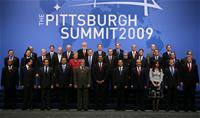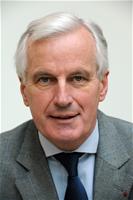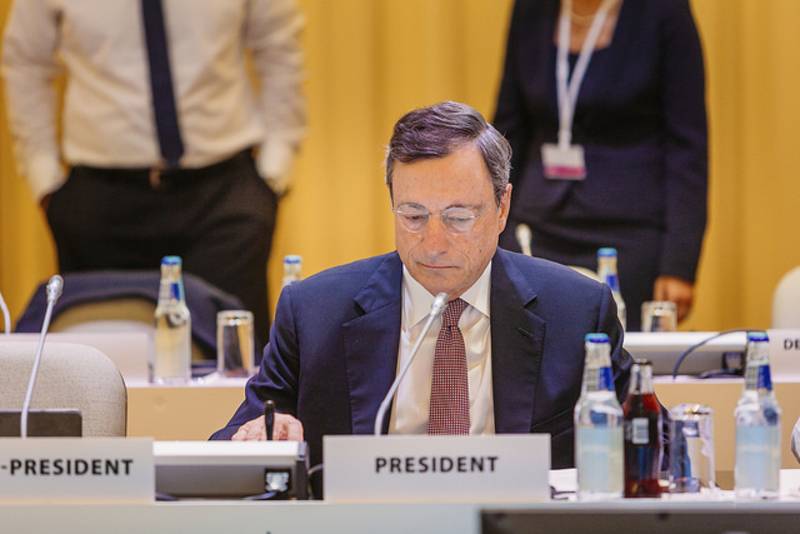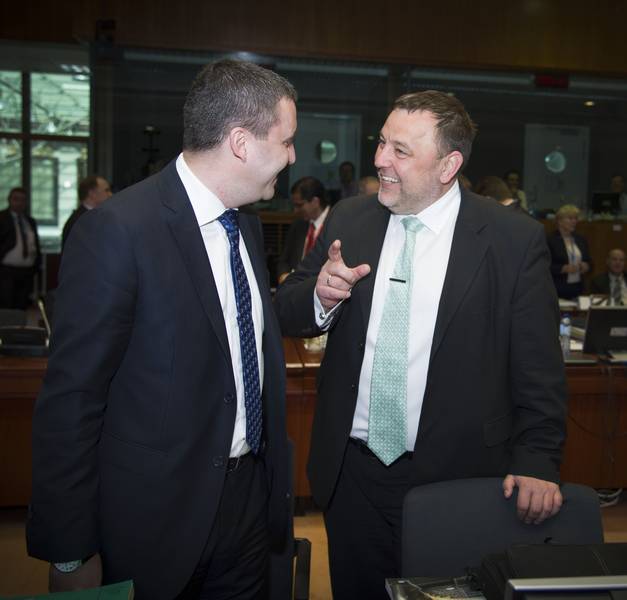G20 is divided on the global bank levies
Ralitsa Kovacheva, April 28, 2010
 The G20 finance ministers discussed but did not approve IMF's proposal for the introduction of global bank levies. “The apple of discord” is the thesis that financial institutions are to blame for the crisis and they should return the gesture to taxpayers, who carry the burden of rescue measures. This is why the IMF proposes banks (and not only) to be taxed with a levy which is to support troubled finance institutions and prevent new crises of the same scale. The proposal envisages also the introduction of a second tax on banks' profits.
The G20 finance ministers discussed but did not approve IMF's proposal for the introduction of global bank levies. “The apple of discord” is the thesis that financial institutions are to blame for the crisis and they should return the gesture to taxpayers, who carry the burden of rescue measures. This is why the IMF proposes banks (and not only) to be taxed with a levy which is to support troubled finance institutions and prevent new crises of the same scale. The proposal envisages also the introduction of a second tax on banks' profits.
According to the final communiqué after their meeting in Washington (April 24-25th) the ministers “are looking forward to receiving the IMF`s final report on the range of options that countries have adopted or are considering as to how the financial sector could make a fair and substantial contribution towards paying for any burdens associated with government interventions to repair the banking system”. A focus is put on maintaining national responsibility and the individual approach of the states:
“We call on the IMF for further work on options to ensure domestic financial institutions bear the burden of any extraordinary government interventions where they occur, address their excessive risk taking and help promote a level playing field, taking into consideration individual country’s circumstances.”
The proposals are to be finalized until the G20 summit in Toronto in June. It is the host country - Canada (currently holding the presidency of the G7) that heavily criticised the levies. Canadian banks remained unharmed during the crisis, unlike those in the United States, the United Kingdom or continental Europe, the Financial Times notes. The newspaper quoted Canada's finance minister Jim Flaherty saying that Canada was a sovereign country that could regulate its own banks and other financial institutions the way it saw proper:
"As the finance minister of Canada, I'm not going to impose a tax on our banks that performed well during the financial crisis."
Skeptical about the proposed levies is also Japan and the BRIC countries: Brazil, Russia, India and China. However, the US Treasury Secretary Timothy Geithner said the US would go ahead and introduce its own bank levy regardless. The EU leaders took a similar position. Germany is working on a new draft legislation, establishing a special bank stability fund. It will be financed by levies, depending on the level of systemic risk of any individual institute.
The G20 Finance Ministers noted that global recovery has progressed better than previously expected, but at different speeds. That's why different policy responses for the different economies are required. The ministers reaffirmed that the “reform is multi-faceted but at its core must be stronger capital standards, complemented by clear incentives to mitigate excessive risk-taking practices”.
They will meet once again in the beginning of June in South Korea to prepare the Toronto summit. However, against the background of the current contradictions, the expectations for a compromise on financial regulation seem exaggerated.
In the meantime Michel Barnier, the European Commissioner responsible for the  Internal Market and Services welcomed the IMF's proposal for global bank levies but noted that it was not enough. According to Barnier, prudential reforms are needed: improved supervision, changes to capital and liquidity requirements to reduce the likelihood of banking failure; actions to deal with large systemically important banks; action to reduce or manage the complexity of the financial sector; change of the culture of governance. "We need better corporate governance. More transparency. Better risk management", Michel Barnier said and added: "consideration of what needs to be done to increase consumer protection".
Internal Market and Services welcomed the IMF's proposal for global bank levies but noted that it was not enough. According to Barnier, prudential reforms are needed: improved supervision, changes to capital and liquidity requirements to reduce the likelihood of banking failure; actions to deal with large systemically important banks; action to reduce or manage the complexity of the financial sector; change of the culture of governance. "We need better corporate governance. More transparency. Better risk management", Michel Barnier said and added: "consideration of what needs to be done to increase consumer protection".
These objectives are in line with the G20 roadmap, Barnier assured. He called for a new deal between the finance sector and citizens, because the thing in the world needs most now after crisis is confidence.
 Mario Draghi | © ECB
Mario Draghi | © ECB Vladislav Goranov, Sven Sester | © Council of the EU
Vladislav Goranov, Sven Sester | © Council of the EU Tsakalotos, Djisselbloem, Gramegna | © Council of the EU
Tsakalotos, Djisselbloem, Gramegna | © Council of the EU